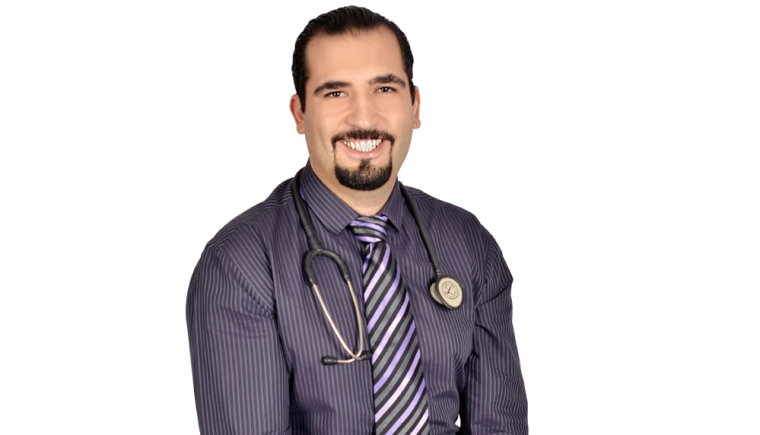
VSG Q & A’S: The Swollen Sleeve
March 26, 2013Dr. Guillermo Alvarez of Endobariatric answers a question on the minds of many who are considering or have had the Vertical Sleeve Gastrectomy (VSG): Why does the sleeve get swollen?
Transcript of VSG Q & A'S: The Swollen Sleeve
Hello and welcome to the question of the week. I am Dr. Alvarez and this week we will talk about how the sleeve gets swollen after the surgery. I believe this is an important thing to understand so you can have patience, especially those first few weeks after surgery, and stick to your diet, to that liquid diet, which is super important to let that sleeve heal nicely. Now, I have included a couple of video clips of actual studies for you to see what I am talking about so that you will clearly understand the importance of this. We will get to those videos in a minute.
Now, why does the sleeve get severely swollen after surgery? Is it because the surgery was done incorrectly? Is it because I am different?. The answer is no. Absolutely every single sleeve will get swollen right after surgery. Some of course more than others. In some patients, the stomach is practically a virtual space. It is so swollen that nothing goes down just barely liquids. I explain to my patients that inside of the sleeve, the tube or the sleeve, is covered by mucosa. Mucosa is similar to tissue to the inner part of the cheek. When you bite your cheek accidentally, I'm talking about a good bite, it will immediately swell up. You will notice it. This is the same things that happens to the sleeve right after the surgery. Now if you can recall how long it takes for that bite on your cheek to come down and for the swollen tissue to go away, well this may take between 5-7 days. This is the same time the sleeve will be at it's highest point of inflammation-the first 5-7 days after surgery. This is the reason we go easy on the sleeve with medications or hydration or any other thing that we start off those first few days. If you normally take medications for diabetes, high blood pressure, etc., be sure to talk to your doctor prior to discharge so that he can explain how to take your medications, how to space it out in between or through out the day.
I made a video about this topic and I will place a link on the screen so that you can follow. Okay, let's go to the videos so that I can explain a little more what I am talking about. I want to show you two short clips right here. Both are x-ray studies done with fluoroscopy machine. What that means is that it is an x-ray but it is still showing a still imagine of an X-ray. It's real time video. The first video is a 24 hours post-op sleeve patient. You'll notice how the sleeve is a virtual space. You will see a very thin line of fluid, of contrast material, being able to go through the sleeve. This is why it is super important that you stick to that liquid diet until the sleeve has healed. Only the liquid goes down through there. It is so swollen. After the sleeve has healed the swollen tissue has come down, the sleeve is a real space now. It is not a virtual space and I will demonstrate on this following clip. On that second clip you will notice that sleeve, now you'll you see a wider column of contrast of material coming down the sleeve. Notice that it doesn't not restrict or hold the liquid. It goes right through because the swollen tissue is now gone.
I think these clips help a lot demonstrating what I am talking about and I hope you found them useful too. That's it for the question of the week. I hope it was useful and make sure you subscribe to our videos, and submit your frequently asked questions. We will be picking out questions so that we can answer them here on YouTube.
Here's a link so that you can subscribe. (See video) I am Dr. Alvarez. You take care. We will see you next week.
Be sure to check back for more video Q & A's with Dr. Alvarez!
Dr. Guillermo Alvarez is the author of the book "Successful Weight Loss with the Gastric Sleeve". He is a highly skilled Mexico bariatric surgery practitioner who specializes in numerous forms of laparoscopic bariatric surgery, including the gastric sleeve surgery. Dr. Alvarez started his bariatric surgery specialization early in his general surgery residency. He worked in several hospitals in the United States, France and Mexico during his residency and has subsequently dedicated his life to helping obese patients.
 | ABOUT THE AUTHOR Dr. Guillermo Alvarez is a Mexican, board certified, bariatric surgeon who is a member of the prestigious associations ASMBS, IFSO and SAGES. He did his bariatric surgery training in Mexico, USA and France and now he only focuses on the Vertical Sleeve Gastrectomy procedure and the is author of the book "Successful Weight Loss with the Gastric Sleeve". He heads up the team at Endobariatric Bariatric Center in Piedras Negras, Mexico.Read more articles by Dr. Alvarez! |



